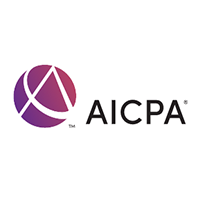
Gain an understanding of why auditors focus on fraud risk, where fraud may be more common, and steps to identify and respond to suspected fraud.
4/18/2024 1:00pm - 3:00pm | Online | AICPA
Members: $118.00, Non-members: $142.00
CPE Categories: Auditing (2 CPE)
Why do auditors focus on fraud risk?
An auditor is responsible for obtaining reasonable assurance that the financial statements as a whole are free from material misstatement, whether caused by fraud or error.
Further the risk of not detecting material misstatement due to fraud is higher than the risk of not detecting one resulting from error. This is because fraud may involve sophisticated and carefully organized schemes designed to conceal it, such as forgery, deliberate failure to record transactions, or intentional misrepresentations being made to the auditor.
This course will cover both the planning and risk assessment phases, identifying where fraud is commonly identified earlier in the audit process. Further, this course will examine other areas where fraud is commonly identified, from revenue recognition to liabilities, expenses and disclosures.
You'll also learn how to prepare when fraud is identified.
Practitioners who perform audit engagements
Recall why auditors focus on fraud.
Identify Key Procedures relative to Fraud performed during the planning phase of the audit.
Indicate the Steps to identifying and responding to Fraud risk.
Recognize where Fraud Risk may be more common.
Determine the Steps to address suspected fraud.
Fraud in an audit
Procedures that may Identify Fraud
Steps to respond to Fraud Risk
When suspected Fraud is identified
© Copyright 2024 KSCPA | All Rights Reserved